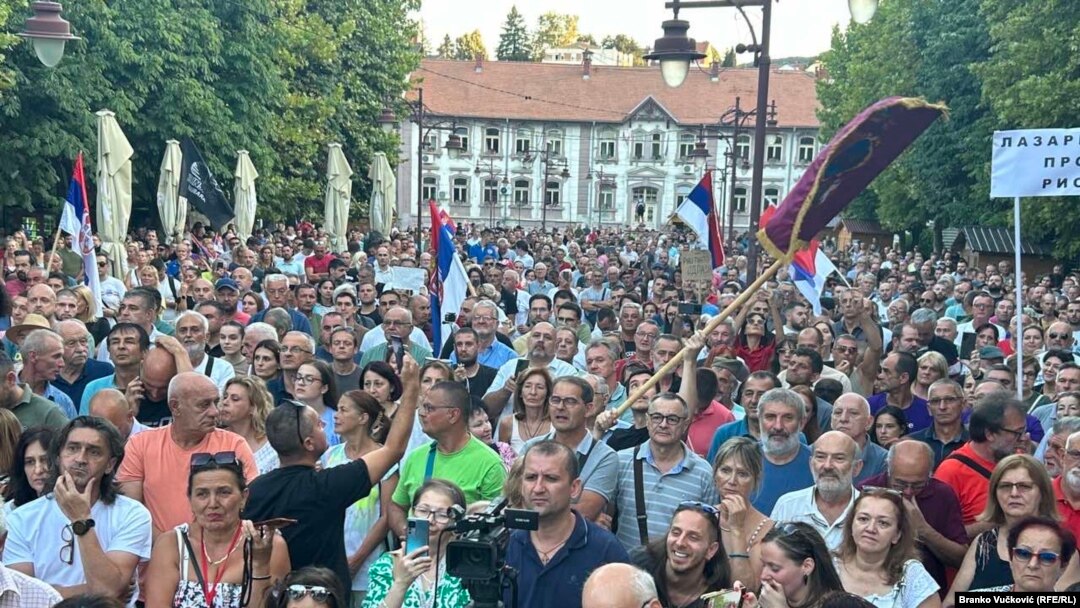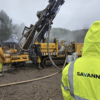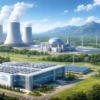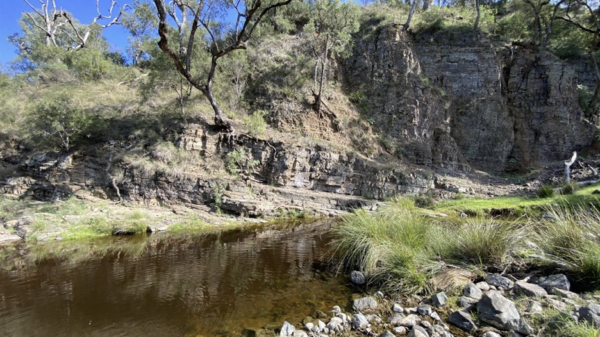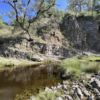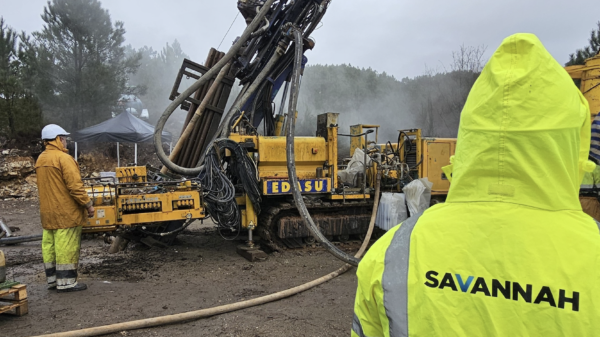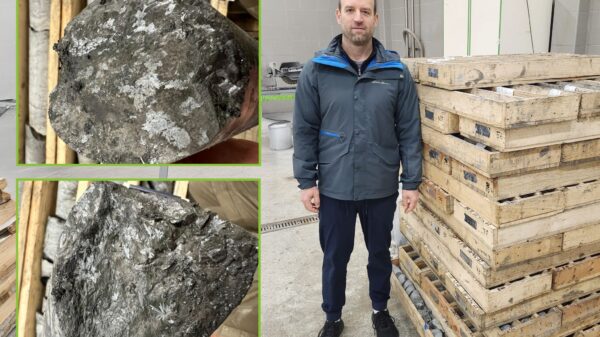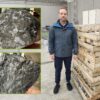Rio Tinto Group (NYSE: RIO)(ASX: RIO) has placed its USD$3.6 billion lithium project in Serbia’s Jadar Valley into a “care and maintenance” phase, pausing development but retaining its landholdings. Opponents say the move is temporary and vow to continue their fight until the company leaves the area permanently.
An internal memo obtained by the ABC outlines Rio Tinto’s decision. The company will halt work while maintaining its property, citing a need to simplify operations and focus on other projects under new chief executive Simon Trott. Trott has undertaken a restructure and cost-cutting initiative since taking charge. The memo also highlighted difficulties obtaining government permits as a key factor.
“Jadar remains a tier-one deposit capable of contributing significantly to Serbia and Europe’s energy transition,” the memo reads. “However, slow progress on permits prevents us from sustaining current spending and resource allocation.”
Community opposition has also played a critical role. Tens of thousands of Serbians have protested the project over concerns that mining could harm the environment and agriculture. Rio Tinto discovered Europe’s largest and highest-grade lithium deposit in Jadar, intending to build an underground mine to extract 2.3 million tonnes of the mineral. The lithium, often called “white gold,” could produce enough batteries for one million electric vehicles annually for several decades.
Chad Blewitt, managing director of Rio Tinto’s Jadar Project, said in October 2024 that the deposit could support at least 40 years of mining and would be Europe’s longest-life, highest-grade lithium site. However, Serbia’s Mining Minister, Dubravka Đedović Handanović, noted that official approval would take another two years.
Read more: The Next Resource Boom: A Mugglehead roundup
Read more: Lithium Americas soars as DOE takes 5% stake in the company
Activist group raises substantial conflict with Rio Tinto
Support for the project came from outside Serbia. The German government, the European Union, and major car manufacturers expressed interest, as lithium mining would support electric vehicle production in Europe. Germany, home to Europe’s largest car industry, stood to benefit particularly from the project.
Bojana Novaković, a Serbian Australian actor and prominent activist with Marš sa Drine, said the pause has not changed the situation on the ground. She stressed that the project has not been cancelled. Novaković stated that the group will continue opposing Rio Tinto and any Serbian government support through all available legal and civic means.
The ABC-obtained memo confirms that Rio Tinto intends to protect its rights to the area, keeping the option open to restart the project. This is not the first pause the project has experienced. In 2022, mass protests prompted the Serbian government to temporarily halt the mine.
However, in July 2024, Serbia’s Constitutional Court annulled the halt, calling it unconstitutional and illegal. Soon after, the government allowed the project to proceed, conditional on meeting environmental and legal requirements. Shortly afterward, Serbian President Aleksandar Vučić, German Chancellor Olaf Scholz, and EU Energy Commissioner Maroš Šefčovič signed a deal in Belgrade granting EU car makers access to Serbia’s raw materials, including lithium. The EU praised the agreement as historic, aimed at reducing reliance on imports from the United States and Asia.
Read more: NevGold delivers major growth at Idaho gold project
Read more: Antimony recovery results from NevGold’s Limo Butte project exceed expectations
Experts urge careful consideration despite value
Since then, Serbia has faced political instability and public anger. In January 2025, Prime Minister Miloš Vučević resigned after weeks of protests, including one that blocked a major Belgrade intersection for 24 hours. The protests were sparked by a railway station canopy collapse that killed 15 people, with citizens blaming corruption and poor construction. Demonstrations have grown into a broader uprising against government negligence and corruption, with calls for President Vučić to resign.
Activists argue that Rio Tinto will return once political conditions stabilize. Novaković said that as long as lithium remains in the ground and multinational corporations profit from its extraction, communities must protect the land. She emphasized that her group will continue its fight regardless of political or corporate pressures.
Experts acknowledge lithium’s value but urge careful consideration. Gavin Mudd, director of the Critical Minerals Intelligence Centre at the British Geological Survey, said lithium’s market has expanded from a few hundred million dollars in 2010 to several billion dollars per year today. He stressed that the mineral is essential for the global energy transition and achieving net-zero climate goals.
“Lithium is increasingly important,” Mudd said. “However, we must mine it responsibly and avoid leaving long-term environmental damage for future generations.”
Opponents remain unconvinced. They question whether any mining operation in the Jadar Valley could be responsible, given its fertile land and populated areas. Novaković warned that allowing the mine would set a precedent for future operations in Europe, potentially threatening other communities.
Read more: USA Rare Earth jumps up 23% after White House talks reveal
Read more: American Battery Tech stock slides after loss of US$58M DOE grant
Activists vow to continue opposition
Rio Tinto’s plan to extract lithium from Jadar shows the tension between global energy needs and local environmental protection. The deposit, rich enough to support decades of electric vehicle battery production, offers economic and strategic benefits. Yet local resistance demonstrates the risks of disrupting farmland, forests, and communities.
The debate is emblematic of broader European and global challenges. Countries seek to secure critical minerals for the energy transition, while communities push back against projects that could harm ecosystems or displace residents. In Jadar, the struggle has combined environmental, political, and social dimensions, resulting in protests, legal battles, and international attention.
As Rio Tinto maintains its holdings without active development, the outcome remains uncertain. Serbian activists and residents vow to continue opposing the project, calling for the company to leave and return land to locals. Meanwhile, the global demand for lithium, especially for electric vehicle production, grows rapidly, keeping Jadar’s potential strategically significant.
The “care and maintenance” designation does not indicate the end of Rio Tinto’s ambitions. Analysts suggest that once political pressures ease and permitting hurdles are addressed, the company may resume its operations. For now, activists and locals remain vigilant, emphasizing that no pause—temporary or otherwise—relieves them from defending their land.
The conflict in the Jadar Valley indicates a growing tension in the global push for renewable energy: the need for critical minerals versus the rights and environmental concerns of local populations. Rio Tinto’s future in Serbia depends not only on permits and economics but also on the capacity of the community to resist what they consider irreversible environmental damage.

